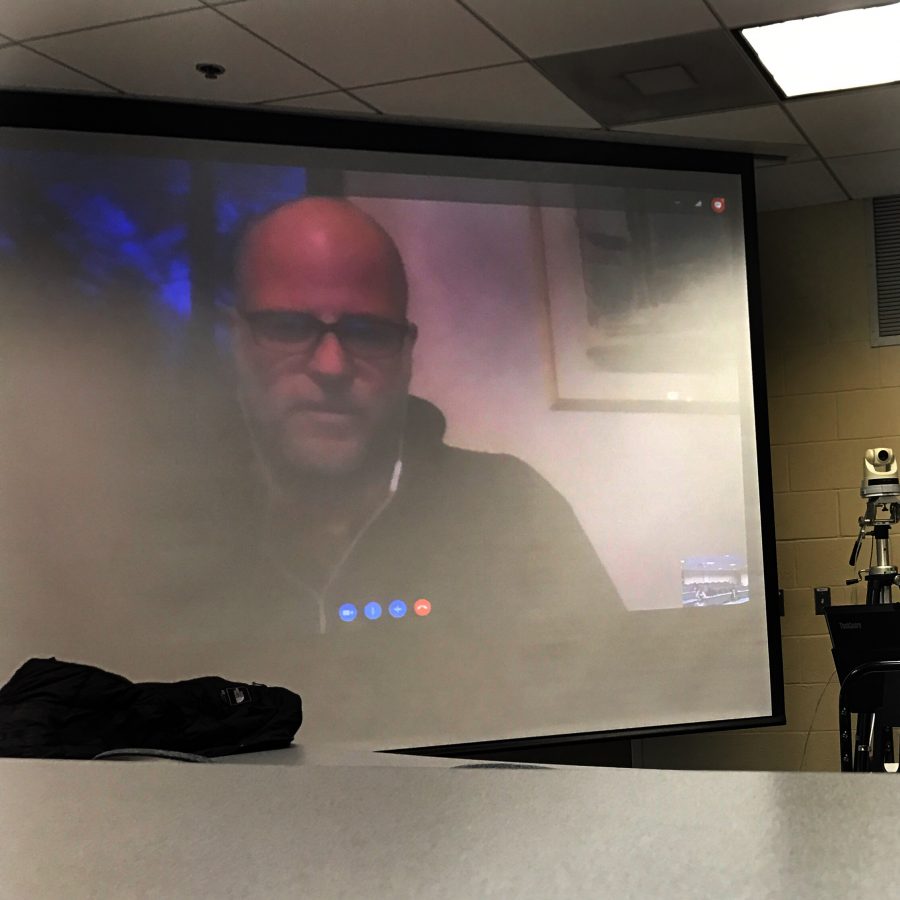The Middle East Relief Initiative (MERI) is a club whose mission is to educate the Loyola community about conflicts in the Middle East and to support chosen non-profit groups through fundraisers and various club events.
Chen Alon is an Irsaeli man and former solider in the Israeli Defense Force who is a co-founder of Combatants for Peace, MERI’s chosen organization.
Combatants for Peace was founded in 2006 by Alon and Palestinian fighter Sulaiman Khatib, along with other members from both sides of the Israeli-Palestinian conflict. Combatants for Peace is a group made of former combatants who have chosen to put down their weapons and use nonviolent methods to create an end to the Israeli occupation of Palestine.
From thousands of miles away, MERI and Alon were able to discuss with each other the realities of the conflict and the placement of Combatants for Peace within that conflict, all because of Skype. The event took place on Sunday, March 26, as the second portion of a two-part event.
The first part was held on Thursday, March 23, when the group hosted a presentation of the documentary “Disturbing the Peace,” which shares the story of the conflict and the organization. The event was free, but MERI sold food tickets to raise money.
Skyping with Alon offered audience members a change to ask questions and engage in a conversation about what it really means to be human.
“The film contextualizes the Israel-Palestine problem in a wider frame,” Alon said.
To Alon, “Disturbing the Peace” shows that it is necessary to transform in peace, in reconciliation, and in dialogue. It also stands as proof of the of the power of solidarity.
“We are not working for co-existence but co-resistance” he said.
In its early years, Combatants for Peace wanted to end the conflict with two separate nations.
“When we took off and start this movement, we were in very Zionist mindsets, we were very orthodox about it. The Palestinians were the mirror of it,” he said. “But as we deepened the dialogue and deepened the binational community, we don’t want to be separated anymore. We want to be together and to struggle together.”
Now, the group is advocating for one nation in which both Israelis and Palestinians can live together in peace, resisting those in favor of the occupation. However, the path to this idea has been a long one. Alon says that one of his biggest hurdles has been overcoming the mindset that he grew up with, which tells him that Palestinians are not to be trusted and that he was a traitor, betraying his country to help the Palestinians.
“The first thing to overcome was the suspicion and the almost natural anger and fear. You don’t know it’s inside you,” Alon said.
Through his activism, Alon has lost this voice of society that he had internalized for years. At first, it was hard for him to forget that some of his business partners were Palestinians. Although he trusted them, he was still quite aware of their differences from him.
Now, he doesn’t focus on the otherness of his colleagues. Surprisingly, though, Alon finds this to be a struggle in his work.
“We’re getting criticisms that the founders are not patient with beginners. [But] it’s difficult for me today to remember how I felt,” Alon said. “[It can be hard] not to forget that we have gone through a transformation together.”
The realization Combatants for Peace’s mission lies directly in that transformation. To Alon, this transformation is a way of repairing the world. It is just part of what we have to do as humans.













































































































